Beyond hate: How lessons from a diversity breakfast can help your thorny conversations
- Oops!Something went wrong.Please try again later.
NEW ROCHELLE − Rabbi Howard Goldsmith of Congregation Emanu-El of Westchester needed this breakfast more than ever.
It wasn’t about the bagels and coffee and fruit salad, served in a noisy gymnasium on a picture-perfect Iona University campus on a crisp autumn day.
It wasn’t about mingling with politicians of all stripes who were drawn to the 22nd American Jewish Committee Westchester/Fairfield Thanksgiving Diversity Breakfast and sought the podium to show their solidarity.
Goldsmith craved something deeper, a salve for his aching heart, six weeks after Hamas terrorists attacked innocents and took hundreds of hostages on Oct. 7.
So, a week before Thanksgiving, the rabbi went to breakfast. This breakfast. Breaking bread — well, bagels — with Hindus and Christians, Muslims and Jews, Democrats and Republicans.
They gathered, appropriately, in an Iona gymnasium where, painted on the walls high above were the Latin words "Certa Bonum Certamen." On the opposite wall, its translation: "Fight the good fight."
They heard from Westchester County Executive George Latimer, whose keynote address noted that civilizations everywhere have suffered genocides and perpetrated genocides. Latimer said the end of Ireland's "Troubles" only came when the voices of terrorism were silenced by voices for peace.
In her call to action to bring the event to a close, Myra Clark-Siegel, regional director of American Jewish Committee Westchester/Fairfield, the event's sponsor, spoke of these dark times, when the eyes of the world are on war in Ukraine and Israel.
But she and others found hope in the unity expressed at the event's roundtables, where participants tackled the thorny idea of trying to bridge divides with respect and shared purpose.
It was just the kind of spiritual meal Rabbi Goldsmith came for.
“Like many in the Jewish community, I have felt under siege. I have felt attacked. I felt very alone," Goldsmith said later. "And to come into this room with this incredible diversity of people with a wide range of opinions and views and everybody saying, ultimately, we stand together for humanity and for human dignity was so powerful. For the first time in a long time, I feel incredibly supported by my peers, by the community.”
After the breakfast, he and five other participants sat down in a nearby teachers’ lounge, to talk about what they had heard at breakfast, how they might carry that message forward, and how those lessons might help you this holiday season when you face those difficult conversations with family or friends who think differently than you.
Consider it food for thought, something else to chew on as the holidays approach.
Not surprisingly for people fresh from a diversity breakfast, they saw the real benefit of shared differences and of taking the time to acknowledge what makes the other person tick. But don’t set the bar too high for yourself, they cautioned. Bridges take time to build. Here's a sampling of what they said, in their own voices.
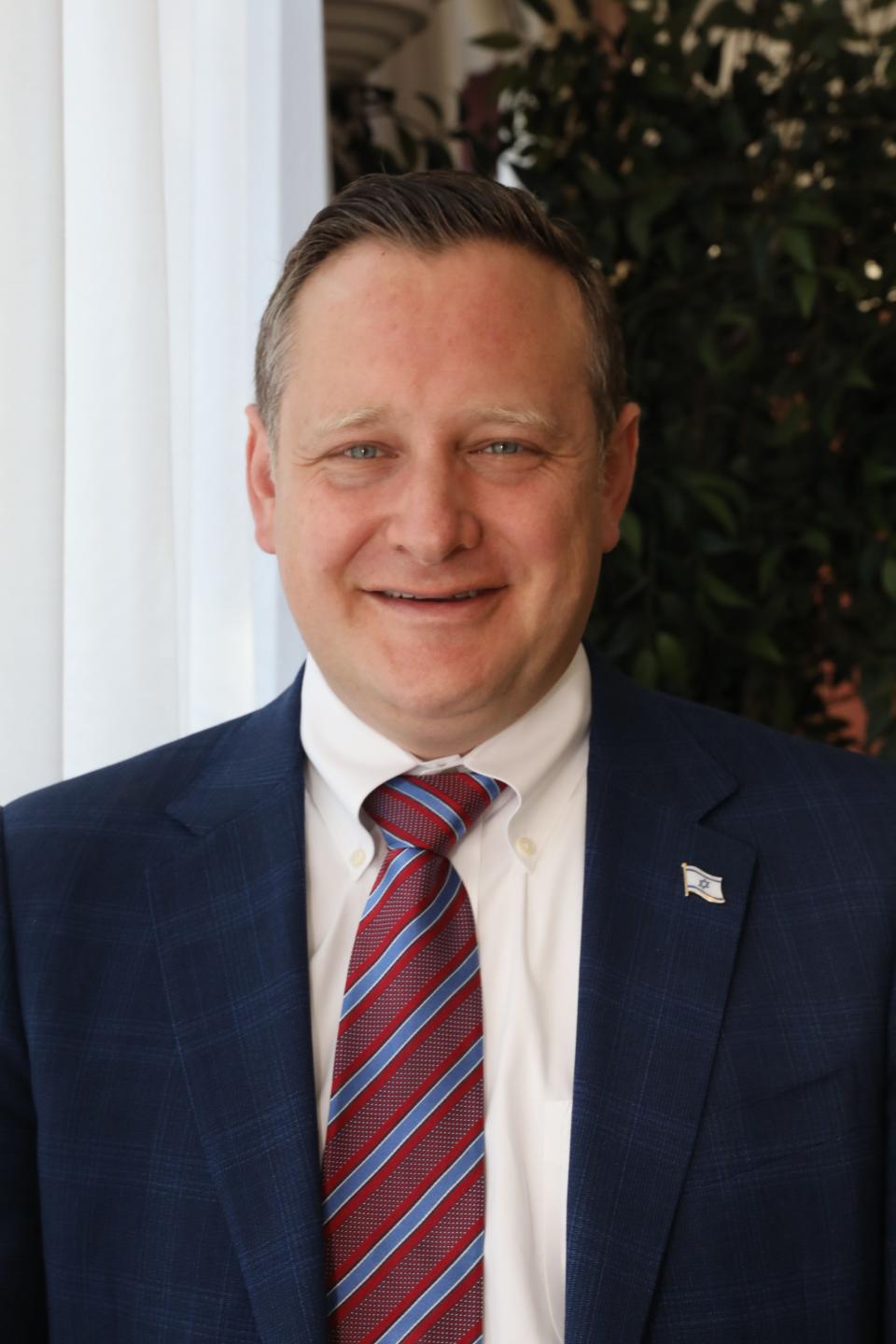
Rabbi Howard Goldsmith | Congregation Emanu-El of Westchester, Rye
MAKING A CHOICE: “I try very hard to build relationships based on what I have in common with people and then to learn from the differences that I have with them. Differences can either be an opportunity to learn and grow, or differences can become divisive and can separate people. That's a choice we have.”
A PUPPY CAN HELP: “I've got two kids. I've got a puppy. So anybody with kids or an animal, I can talk to them. (Laughs.) Once we've established a relationship, then we can get into things we disagree on. I have a congregation with around 400 families, somewhere north of a thousand people. Not everyone agrees with me. And when I get up on that pulpit and I preach a sermon on some topic of the day rather than just on questions of spirit, I know there are going to be people — and I usually know who — will disagree with me. But I have walked with those people. I have sat by their bedside in hospitals and I buried their parents and bar mitzvahed their kids. So we have a depth of relationship that allows us to disagree on a certain level, on certain ideas, on political topics. But we're sustained by that relationship.”
A CUP OVERFLOWETH: “Psalm 23 speaks about ‘my cup overfloweth.’ The immediate symbolism of that is with bounty and with good things. But everybody knows that our cups are always filled with all of life, with the good things and the bad things, with the joys and sorrows, with the ways that make it easy to connect with people and the things that divide us. And so on Thanksgiving, I lift that full cup and I say: ‘My life is not uni-dimensional. My life has a lot of texture, good and bad. Joy and sorrow, easy relationships and difficult ones. But I can lift the cup and I can drink deeply from it. And that helps to sustain me.”
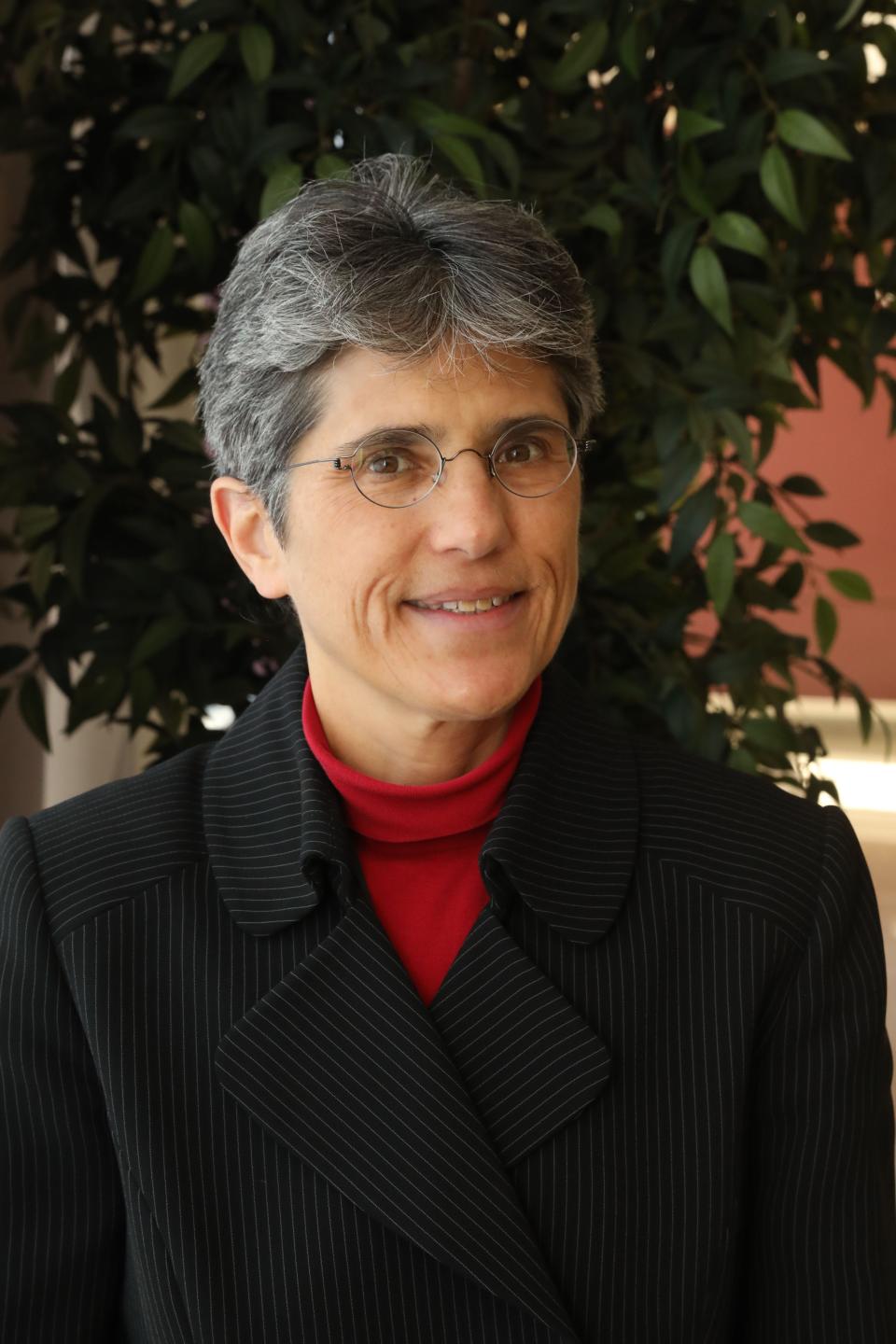
Elena Procario-Foley, Driscoll Professor of Jewish-Catholic Studies at Iona University
HEARING OTHERS ON THEIR TERMS, NOT POLLYANNA: “Educating against hate is what everyone needs to do in our daily lives by meeting each other and opening our hearts. That is not meant to sound Pollyanna-ish. We have got to allow the other person to speak their understanding and their worldview, and we've got to attempt to hear it on their terms. And the other person has to attempt to hear our understanding of the world on our terms, and then we can find those commonalities. Then we could look at differences and try to learn from differences instead of just walking away from each other.
“PUT HUMANITY BACK”: “The great American Jewish author, Cynthia Ozick, said: ‘When you find and witness inhumanity, then it's time for you to put humanity back.’ We have to talk and be with each other in relationships in a way that does that, to put humanity back in relationships.”
HONOR THE OTHER WHERE THEY ARE: “It's really, really hard to listen to someone with whom you have huge disagreements, and then you have to tread softly. That in-law at the dinner table with the big mouth, you just have to say: ‘OK, I'm going to listen because it's my job to understand where that person's coming from.’ Because if I don't understand where the person's coming from, I can't make an offer of hope or of love or of understanding. I need to try to understand and to honor that person where that person is.”
IT'S A LONG PROCESS: “It requires a lot of patience, a lot of forbearance and a lot of humility to be able to say, ‘I might be wrong.’ We have to have that moral and intellectual humility to approach the other person and approach that divinity in the other person and say, ‘I've got to figure out why you think you're right. And I've got to figure out why I think I'm right. And then maybe we can find something new and good and creative and holy and productive of peace in the world if we can get together.’ That's why you’ve got to work on the relationship and not so much worry at first who's right and who's wrong. Work on the relationship.”
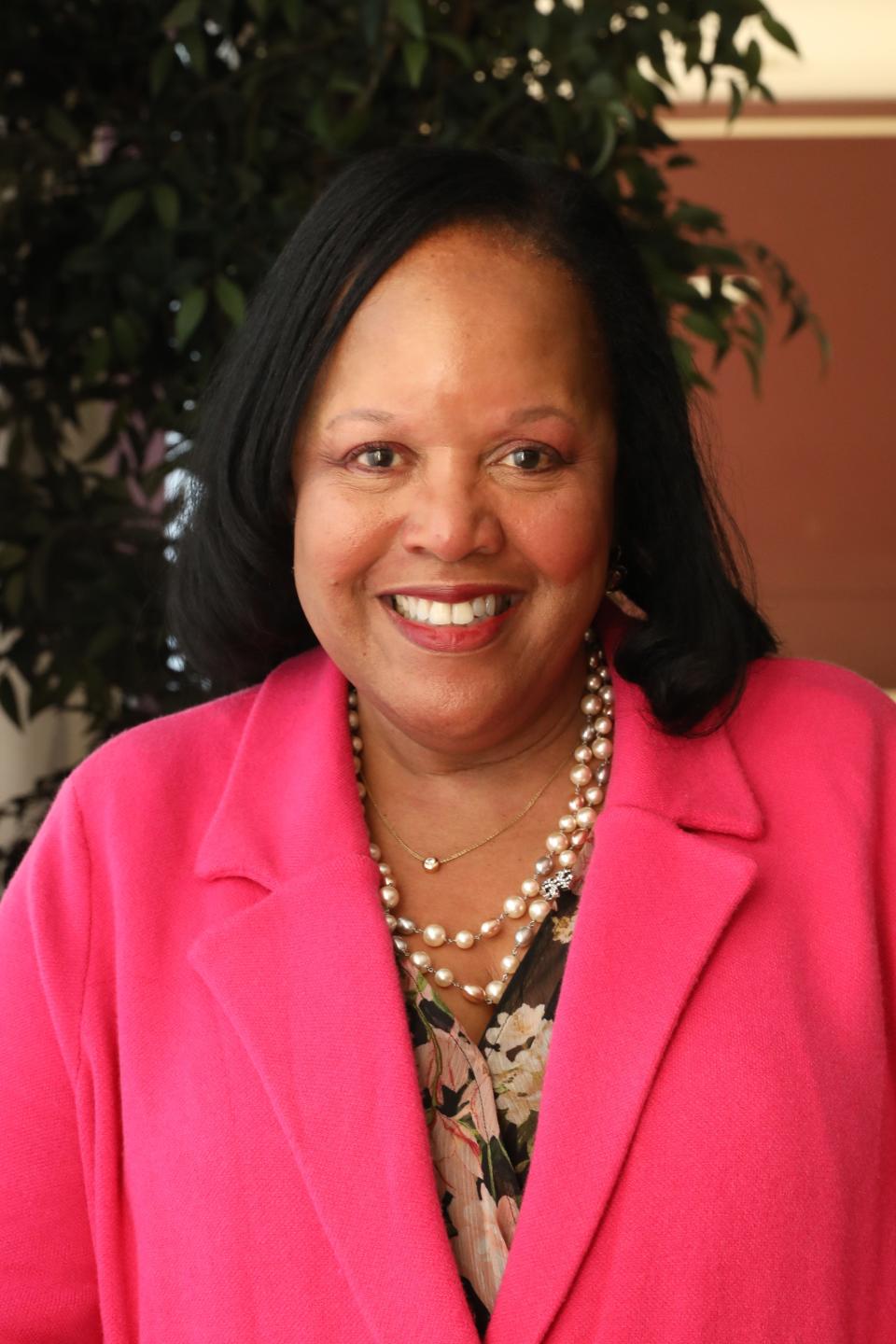
Alison Munsch, business professor at Iona University
BUILDING BRIDGES: “I certainly don't have a solution for the problems of the world that have prevailed for its total existence, but I do have a certain approach. My spirituality, my faith helps. That is always a light in darkness. And through my research and my reading, I look for ways to build bridges. Stephen Covey said there are seven habits for highly successful people. Two of those habits resonate with me and I try to have them in my everyday practice: Seek first to understand and then to be understood; and think win-win. I'm very intentional about that.”
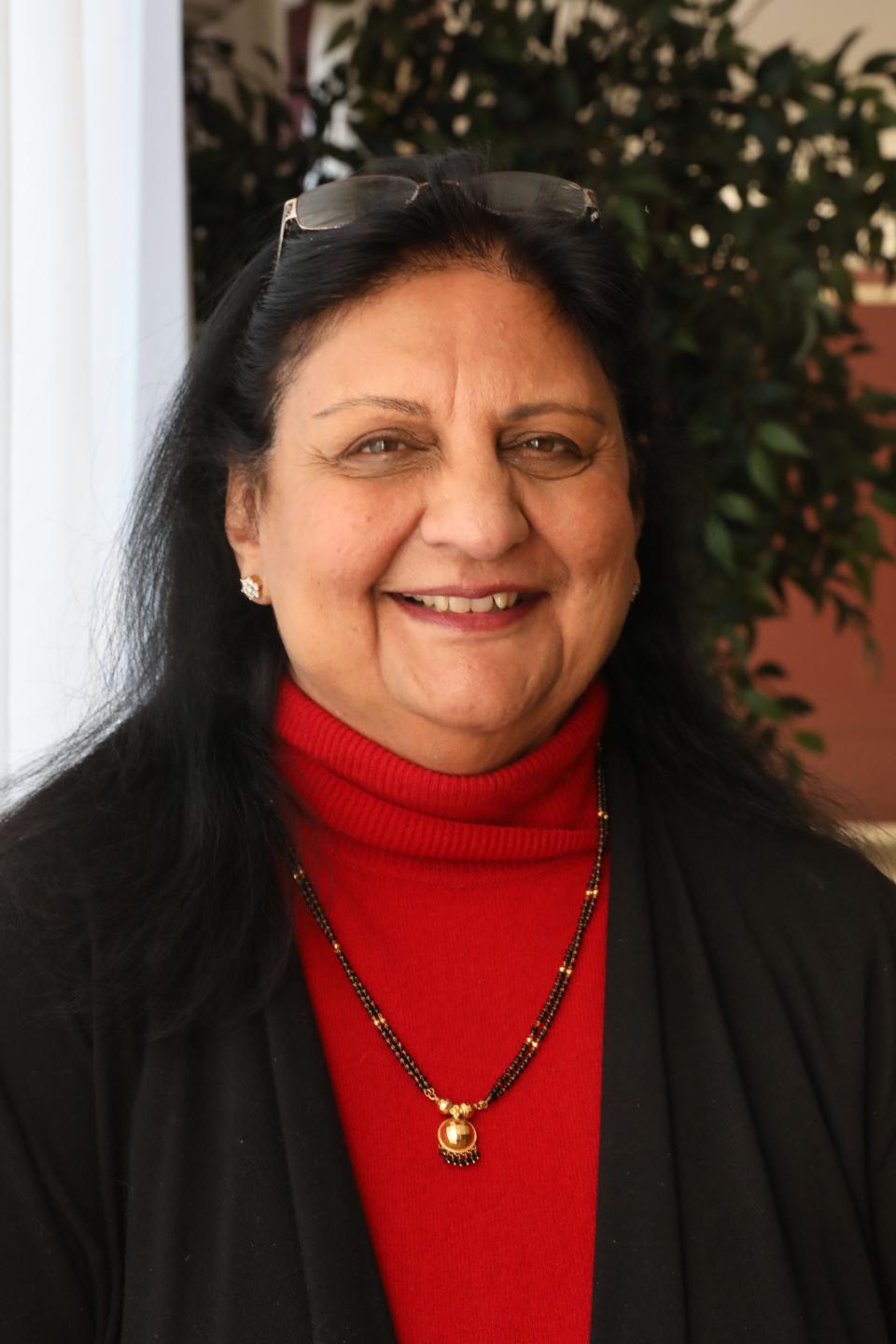
Bhavana Pahwa of Westchester Indians Coalition and the Westchester County Asian Americans Advisory Board
A LITTLE POSITIVITY: “There's been a lot of hate and it's all over the world and it just seems to be spreading. And I think these kinds of meetings are so important to bring everybody together and talk about what's in common. It just brings a little bit of hope and positivity to a very, very negatively charged environment that we live in today.”
DON’T REACT IMMEDIATELY: “Whenever there's so much negativity in the world, it raises a lot of emotions in a lot of people. And it's important for us to listen to one another, first of all, and then not immediately react, but to perhaps take that emotion and channel it in a more positive and more constructive way. I've always believed that violence is never the answer to any problem. So come up with some more positive solutions and work with one another. And if it doesn't work the first time, try again.”
LISTEN UP: “It's important that we listen and hear the other side. Everybody may not share the same opinions as you, and that's OK. You don't always have to exert your point of view either. Sometimes it's just more important for you to listen to what the other person has to say, even if those opinions don't match necessarily how you feel.”
MORE GOOD THAN BAD: "My approach to Thanksgiving has always been to be thankful for all the good things that are around us. And we do have good things. For every negative thing that we hear on social media or in the news, there are so many positive stories out there of people doing good, and that gives me a lot of hope and a lot to be thankful for.”
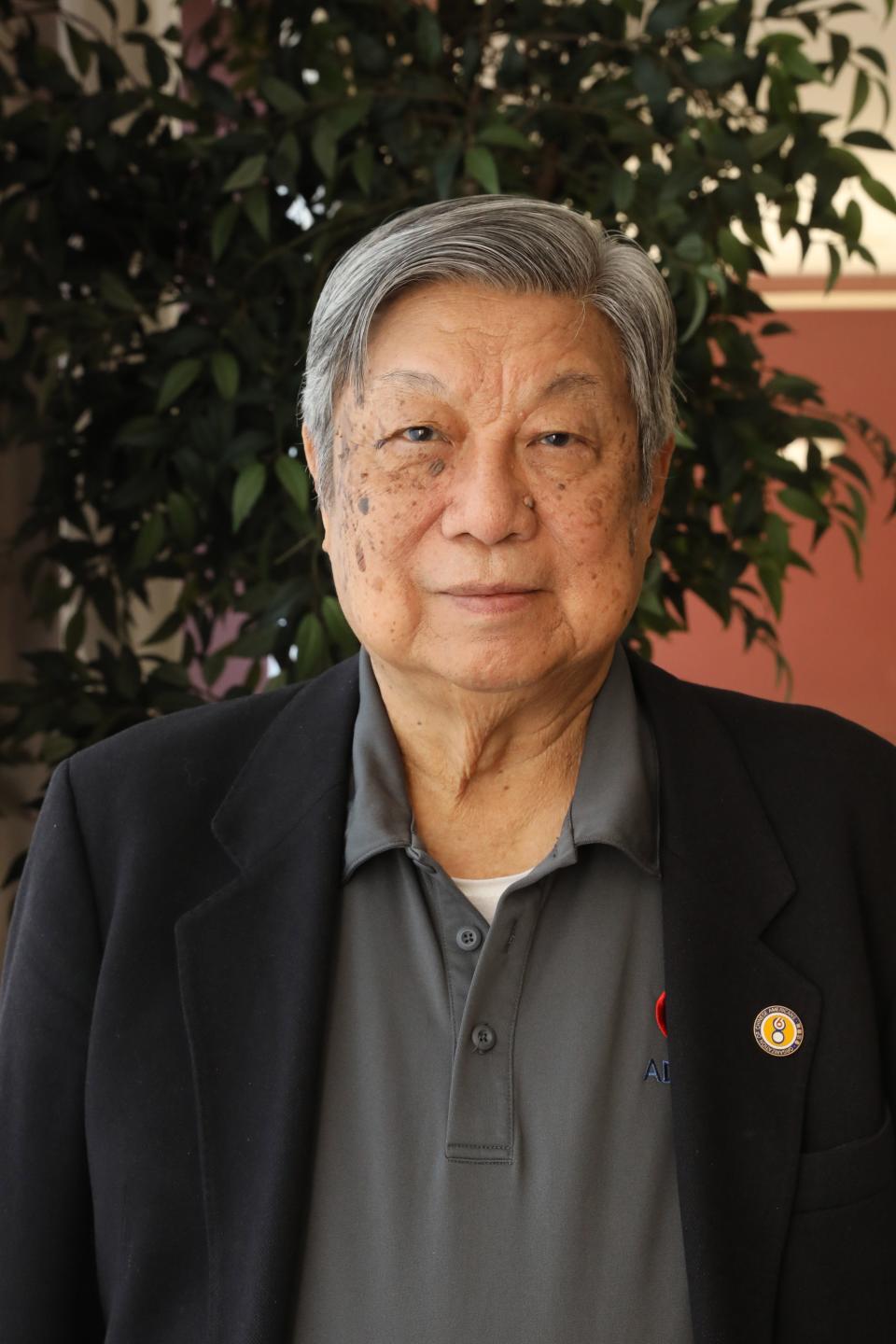
William H.P. Kaung of OCA-Asian Pacific American Advocates
NO MAJORITY: “There’s 400 years of anti-Asian hate in the United States, and it's important for us Asians to get involved in talking about our history. There's a lot of things in common because a lot of us are minorities in this country. We go through similar struggles, even though our religion is different, our skin color is different. Westchester County, in the 2020 Census, has no majority. So that's important in the dialogue.”
OPEN DIALOGUES: “A lot of hatred has to do with misunderstanding. People just don't understand each other because maybe they speak a different language, they are a different color. With communication you should foster understanding. You have to listen to people. You can’t have one-way conversations. You have to promote understanding. You have to ask questions, open dialogues. That's very important.”
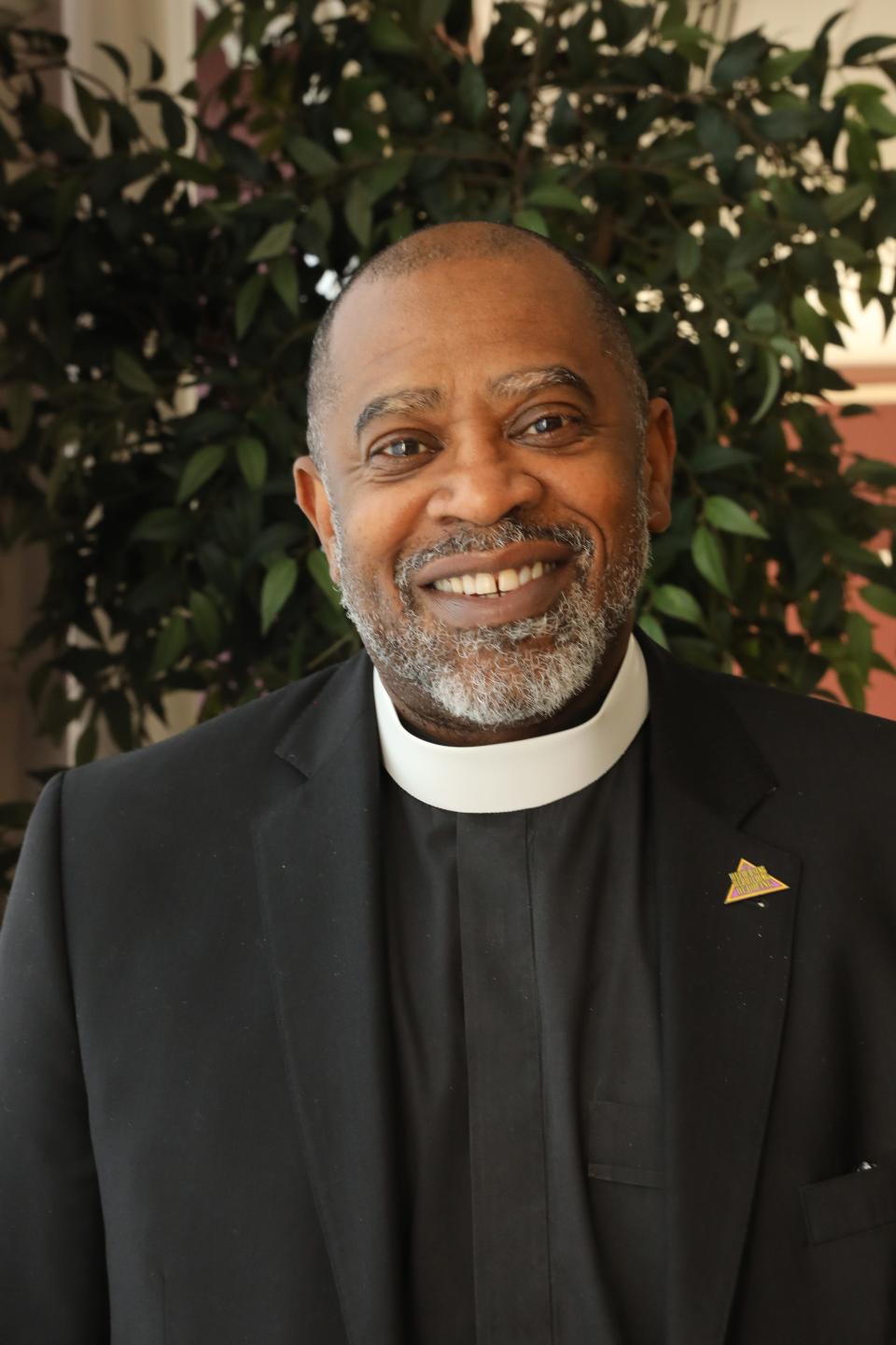
Rev. Stephen Pogue of Greater Centennial AME Zion Church, Mount Vernon
BE THE EXAMPLE: “You have to be the one who sets the bar and not allow other people to set the bar for you. You have to be that living example every day of what unity, diversity, and understanding is all about. And the moment that you're not the example, it's hard to bring it to somebody else because if you're a leader in your community or wherever, you have to be that example. And so it's just about living it every day.”
NOT ABOUT SCORING POINTS: “There are going to be some people who already come with a predisposed opinion and they're going to try to make you have an opinion with them. And you don't have to. You just don't have to. The people who already have made up their mind, you're not going to change their mind, not at least in one conversation. Sometimes it's just about listening and let people vent than it is to say, 'Oh, I want to say this or I want to say that,' because then I don't live the example of love and unity. I become part of the divisiveness of what's going on in our nation.”
This article originally appeared on Rockland/Westchester Journal News: Westchester diversity breakfast offers lessons for holiday talk

